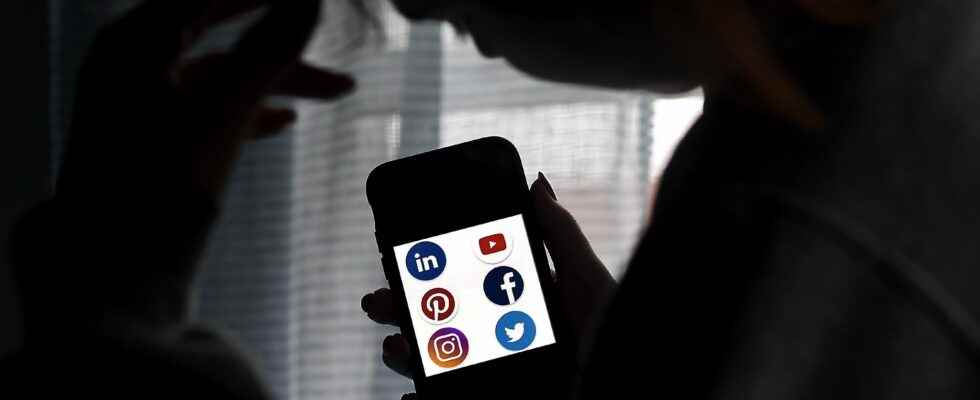By the end of the year, a law could require social network operators to ensure that access to their service is prohibited for those under 15 years old. The project will be examined on March 2 by the National Assembly within the framework of the parliamentary niche of the Horizons group. Its president, the deputy of the first constituency of Corse-du-Sud, Laurent Marcangeli, calibrated his text to maximize the chances of support through the Hemicycle.
According to the bill, “online social networking service companies […] are legally required to prevent registration for their services by minors under the age of fifteen, unless they have expressly obtained the consent of one of the holders of parental authority”. This type of legislation is only valid through the terms of its implementation and the penalties incurred in the event of violation. On this last point, the bill is rather offensive, since it provides for a maximum fine equivalent to 1% of worldwide turnover if a platform does not meet not within forty-eight hours upon a requisition.
This text is obviously going in the right direction – just like that of the Minister of Digital Jean-Noël Barrot on age verification to access pornographic sites. It corrects an absurdity, France having succumbed to an American practice on the collection of data prohibited below 13 years. The legislator is still less than the European regulations on data protection (RGPD), which fixed the numerical majority at 16 years.
Check the age of Internet users on social networks
The consequences of this abdication are known. Especially since the threshold of 13 years theoretically set by the platforms is nothing but a vast farce. Visiting social networks actually starts at… 4 years old, with 21 minutes a day, according to a study by the company ExpressVPN on young Americans and Britons; until the age of 10, daily consumption is stable; it increases to 32 minutes a day, before jumping to 45 at age 13. In the upper bracket of 16-24 year olds, use exceeds an hour and a half on a platform like TikTok, notes an Amnesty International survey, published last week, which confirms the obvious signs of addiction, three quarters of young people surveyed claiming to frequent social networks much more than they would like.
During the closed parliamentary hearings, the platforms concerned – TikTok, Snap, Meta (operator of Instagram), Google (owner of YouTube) – did not show wild exuberance at the idea of assume age verification – especially when the law provides such monumental penalties for failure. They prefer to delegate this task to internet service providers, mobile operators or even application providers, more precisely Apple and the Google Play Store (which is obviously not enthusiastic about this idea).
The effectiveness of a law on this subject is conditioned by two elements. The first is the technique used to verify the age of minors. On this point, nothing is infallible; we can count on the ingenuity of pre-teens to find solutions. The most promising system involves a trusted third party combined with a so-called double anonymity system which would work as follows: a trusted third party is appointed, for example the internet provider (ISP) or the mobile operator, who can be the same and unique company (Orange, SFR, Bouygues, Free, etc.). They alone would guarantee the age of the holder at the time of taking out the subscription (currently, they do not ask for it). If the teenager is over 15, the trusted third party gives the green light in principle. But the operator does not know the recipient of this certificate – a pornographic site or a social network -, and it does not know the identity of the user; he simply knows that the identifier “Kevin_88” is certified as being over 15 years old by the trusted third party. This is, in a simplified way, the principle of double anonymity. The system has the advantage of being acceptable by the CNIL, even if it remains largely porous.
The other indispensable element is a mechanism ensuring transnational application. This naturally starts with the EU. Contacts are planned between the cabinet of the Minister of Digital Jean-Noël Barrot and the Brussels Commission. But a full lockdown also requires involvement from US regulators. And that is a whole different matter.
